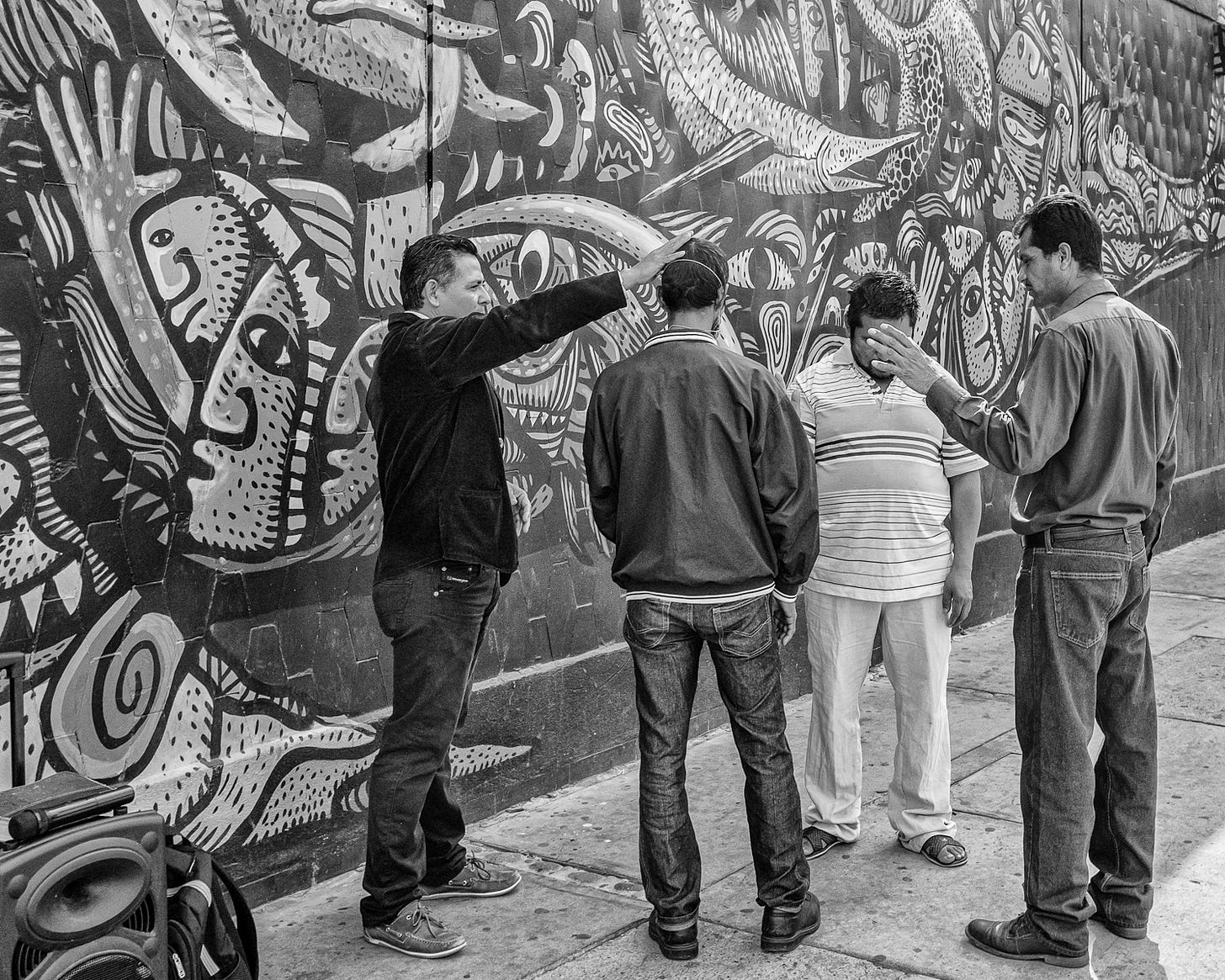Regarding your interview with Simon Mundie
Hi, Robert. Regarding your interview with Simon Mundie, I like your general notion that a peaceful state vs happiness is the worthy, pragmatic pursuit. I would interchange ‘peace’ with ‘stability,’ but it’s a minor semantic preference. I wonder what you think the role of faith is or can be in attaining peace or stability. Does this fall into the “whatever it takes to get you there” folder? That said, is it even possible for humans to be purely faithless? Isn’t saying “I just don’t know” a sort of non-commitment faith cloaked in atheistic, scientific type wisdom? By the way, your critiques of nondualism are spot on.
Thank you. The role of faith, if any, in promoting a peaceful point of view depends on what you mean by faith. In many cases, what people call their faith seems to boil down to having fallen into a kind of hypnotic trance in which a metaphysical belief system is embraced without sufficient basis in the facts of human primate life but primarily because the belief is comforting. Often, such trances deepen progressively due to the confirmation bias that fosters collecting evidence that seems to corroborate one’s beliefs while ignoring, rejecting, or forgetting indications to the contrary.
Comfort is one thing, and peace is another. They are not synonyms. A peaceful outlook does not seek comfort or anything else but accepts the inevitability of what is here now. At peace, one lives moment-by-moment, step-by-step, feeling comfortable if that is the present condition and uncomfortable if that is how things are.
Stability, if you like to call it that, does not require being anchored to an unmovable worldview. Proper stability includes adaptability to motion, sometimes even abrupt or unexpected, like a sailor on a ship in a storm who can walk the decks calmly while others must cling to the rails.
The sailor does not need to cling. She trusts her ability to accommodate whatever circumstances might arise, whether those circumstances are the deck pitching up and down violently or an upsetting thought roiling the mind. I would not call that faith. Faith carries too much religious and metaphysical baggage to be equivalent to trust. When I walk, I trust that the ground in front of me will support the next step, not because some spiritual teacher told me it would or a so-called holy book, but because that is my experience. When walking on a surface that is not trustworthy, I do not depend on “God” to protect me; I watch my step.
From my perspective, faith is a belief or a set of beliefs that one acquires second-hand. One hears about Jesus or Nonduality and takes the words for facts. The sailor’s trust is not like that. She doesn’t walk the decks telling herself she is safe without handholds. She walks the decks freely because one day, she stopped clinging to safety, allowed the boat to pitch and roll, and discovered that she was steady on her own two feet.
Does this mean she can walk on any deck in any storm, no matter how fierce? No. There are no absolute assurances in life. That’s why people gravitate to faith--they want those assurances and are willing to pay for them by muffling any doubts that may arise.
“Is it even possible for humans to be purely faithless?” Yes, and the price for that liberated outlook is living without final answers to ultimate questions such as: What is all this? What does it all mean? Who am I? Etcetera. The only proper answer to a question like that is, “I don’t know.”
There may be a kind of clever, tricky “I don’t know” that stands in for traditional belief structures, as you asked, but that’s not what I am talking about.
To awaken every morning to a new day without explanations, promises of future well-being, or certainties about existential and metaphysical matters, one moves freely moment by moment without aiming for any particular outcome. That is what I call peace of mind. What is, is.
For years, I have encouraged people to loosen their grip on the “spiritual” handrails and see what life is like without them. Some have heard that and acted on it. That’s not up to me.


‘Stability, if you like to call it that, does not require being anchored to an unmovable worldview.’
‘What is, is’
Two absolute zingers, right there.
Thanks for being so clear in your response. Being able to accept the inevitability of what is here, now, has become more difficult as I age. Physical pain is a bear, but it is what is here, now. At 68 I’m fairly sure it isn’t going to get much better and if there is that possibility of being in less pain it will happen not through faith or hope but in seeing “what is”. Your answer reminds me that being with what is is not being a martyr, it is not a negative mindset, it’s what is true for me right now.